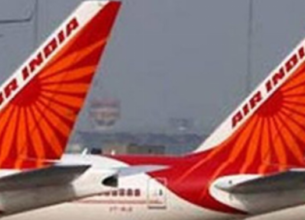PRIVATE TRAINS IN INDIA
31, Jan 2020

Prelims level : Infrastructure Road, Inland, Railway Aviation, Housing, Rural & Urban
Mains level : GS-III Infrastructure: Energy, Ports, Roads, Airports, Railways, etc
Context:
- NITI Aayog and Indian Railways have come out with a discussion paper for running 150 trains on 100 routes by private operators. The recommendations of the high powered committee envisaging an investment of 22500 crore rupees have been put in public domain for stakeholder consultations.
- The 100 identified routes which include Mumbai Central – New Delhi , Patna – New Delhi , Howrah- Chennai and Lucknow- Jammu Tawi etc. have been split into 10-12 clusters.
- As per the report the private operator will have the right to collect market linked fares and will be provided flexibility of class composition and halts.
- The aim for this overhaul is said to ensure world class service experience to passengers, reduce supply demand deficit and introduce modern technology
Advantages of Privatisation of Railways:
- Improved Infrastructure:Privatisation will lead to better infrastructure which in turn would result in improved amenities for Travellers.
- Normalization of prices due to the competition: when private players are allowed to enter the sector would foster competition and hence lead to overall betterment in the quality of services in line with the costs and prices.
- Improved Security:Private participation can lead to better accountability and monitoring, which can keep a check on rising accidents in railways.
- Better Technological Innovation:Private participation can lead to the infusion of modern technology and capacity building of Indian railways.
Disadvantages of Privatisation of Indian Railways:
- Limited Coverage:Privatisation of railways would mean the railways will become a profit-making enterprise, this would lead to the elimination of railways routes that are less popular.
- This can have a negative impact on connectivity and further increase the rural-urban divide.
- Lesser Inclusive:Hike in fares can render the railways out of reach for lower-income groups.
- Issue of Accountability:The whole railway system cannot be handled by a single party or coordination will be very difficult if area wise given to private parties, which may lead to accountability issues.
- Impact on the Economy:Indian Railways is the backbone of India, it provides low fare transportation to agricultural and industrial trade. Therefore, privatisation of Indian railways shall definitely affect the Indian economy at large.
Challenges:
- Absence of Independent Regulator in the railway sector:In the absence there are chances of litigation or other issues as cropped up in the road sector.
- No Past Experiencein the PPP model for the implementation of projects for railways.
- Accountability:Private companies are unpredictable in their dealings and do not share their governance secrets with the world at large. In such a scenario it would be difficult to pin the accountability on a particular entity.
- The existing Railway workers would be affected and may lead to severe job losses.
Recommendations of the Bibek Debroy Committee:
- Transition to Commercial Accounting:The financial statements of Indian Railways need to be redrawn, in accordance with principles and norms nationally and internationally accepted.
- The non-core function of railways must be privatized:These activities include running hospitals and schools, catering, real estate development, including housing, construction and maintenance of infrastructure, manufacturing locomotives, coaches, wagons and their parts.
- Expansion of Indian Railways Manufacturing Company:Wagons are already produced by the private sector. Coaches and locomotives could follow.
- Encouraging Private Entry:Private entry into running both freight and passenger trains in competition with Indian railways should be allowed and private participation.
- Independent Regulator: Shift regulatory responsibility from the government to an independent regulator as the private sector will only come in if there is fair and open access to Railway Infrastructure.







